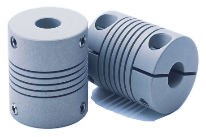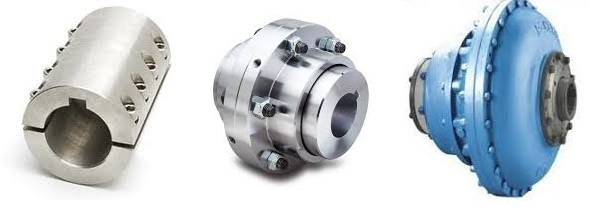Torsion Shaft Coupling
Introduction to Torsion Shaft Couplings
Torsion shaft couplings are essential components in mechanical engineering, connecting two shafts to transmit power and motion without torsional backlash. These couplings are widely used in various industrial applications.
Understanding the Mechanics of Torsion Shaft Couplings
The mechanics behind torsion shaft couplings involve the transmission of torque while accommodating misalignment. They ensure smooth operation by allowing for slight angular, parallel, or axial misalignments between connected shafts.
Types of Torsion Shaft Couplings
There are several types of torsion shaft couplings, each designed for specific requirements and applications. Common types include rigid couplings, flexible couplings, and torsional couplings.
Benefits of Using Torsion Shaft Couplings
Torsion shaft couplings offer numerous benefits, such as reducing vibration, allowing for misalignment, and improving overall system efficiency. They help in extending the lifespan of connected machinery.
Materials Used in Torsion Shaft Couplings
Torsion shaft couplings are made from various materials such as steel, aluminum, and composite materials. The choice of material depends on the application, required torque, and environmental conditions.
Applications of Torsion Shaft Couplings
These couplings are used in a wide range of applications, from automotive and aerospace to manufacturing and heavy machinery. They are integral in ensuring reliable power transmission.
Design Considerations for Torsion Shaft Couplings
Designing an effective torsion shaft coupling involves considering factors like torque capacity, misalignment tolerance, and environmental conditions. Proper design ensures optimal performance and longevity.
Installation and Maintenance of Torsion Shaft Couplings
Correct installation and regular maintenance are crucial for the performance of torsion shaft couplings. Proper alignment and lubrication can prevent premature wear and failure.
Troubleshooting Common Issues
Common issues with torsion shaft couplings include misalignment, excessive vibration, and wear. Identifying and addressing these problems promptly can prevent downtime and costly repairs.
Innovations in Torsion Shaft Coupling Technology
Recent advancements in materials science and manufacturing techniques have led to the development of more durable and efficient torsion shaft couplings, enhancing their performance in demanding applications.
Comparing Torsion Shaft Couplings with Other Couplings
While torsion shaft couplings have their unique advantages, it’s important to compare them with other types of couplings to determine the best fit for specific applications. Factors like flexibility, cost, and installation complexity play a role in this comparison.
Industry Standards and Certifications
Adhering to industry standards and certifications ensures the reliability and safety of torsion shaft couplings. Standards such as ISO and ANSI provide guidelines for manufacturing and testing these components.
Environmental Impact of Torsion Shaft Couplings
Manufacturers are increasingly focusing on reducing the environmental impact of torsion shaft couplings by using eco-friendly materials and processes. Sustainable practices are becoming a priority in the industry.
Future Trends in Torsion Shaft Couplings
The future of torsion shaft couplings looks promising with ongoing research and development. Innovations aimed at improving efficiency, durability, and sustainability will continue to shape the industry.
Choosing the Right Torsion Shaft Coupling for Your Needs
Selecting the appropriate torsion shaft coupling involves understanding your specific requirements, such as torque, speed, and environmental conditions. Consulting with experts can help in making an informed decision.

What are the three types of coupling?
The three primary types of couplings are rigid couplings, flexible couplings, and fluid couplings. Each type serves a specific purpose and is suited for different applications based on the required flexibility, torque, and environmental conditions.

What coupling is used to connect two shafts?
Several couplings can connect two shafts, including:
- Jaw Couplings: Known for their simplicity and reliability, jaw couplings are used in applications where torque needs to be transmitted without backlash.
- Spider Couplings: These use an elastomeric element to absorb shock and vibration, suitable for moderate torque applications.
- Gear Couplings: Gear couplings are robust and used in high torque applications, offering flexibility in misalignment.
- Disc Couplings: Ideal for high-precision applications, disc couplings can handle high torque while accommodating misalignment.
- Grid Couplings: These couplings use a grid spring element to provide flexibility and dampen vibration, suitable for heavy-duty applications.

What are the two general types of shaft couplings?
The two general types of shaft couplings are rigid and flexible couplings:
- Rigid Couplings: These are used when precise alignment of connected shafts is required. They do not allow for any misalignment and are typically used in applications where shafts are perfectly aligned.
- Flexible Couplings: Flexible couplings are designed to accommodate misalignment between connected shafts. They can absorb shock and vibration, making them suitable for a wide range of applications. Specific types include elastomeric, metallic, and composite flexible couplings.
HZPT: Your Trusted Partner for Shaft Couplings
HZPT, based in Hangzhou, Zhejiang Province, is a modern enterprise integrating R&D, learning, production, and foreign trade. We adhere to our core values of integrity, unity, progress, and innovation, focusing on coupling product research and innovation.
Our business spans across Asia, Europe, Africa, and North America, driven by the vision of becoming a globally influential international group. We specialize in manufacturing various coupling products, including gear couplings, spring pin couplings, serpentine spring couplings, universal couplings, star couplings, expansion couplings, diaphragm couplings, and tire couplings.
We have a complete and scientific quality management system, supported by our technical development and testing departments. Our certifications include CQC, ISO, and CE. We provide excellent sales service and technical support to our customers, upholding a customer-centric approach to foster mutual growth and development.

Why Choose HZPT for Your Shaft Couplings?
- Extensive Product Range: We offer a wide variety of coupling products to meet diverse industrial needs, ensuring you find the perfect solution for your application.
- High-Quality Standards: Our products undergo rigorous quality checks and comply with international certifications such as CQC, ISO, and CE, guaranteeing reliability and performance.
- Innovative Solutions: Our R&D team continuously works on developing innovative coupling solutions, staying ahead of industry trends and technological advancements.
- Global Reach: With our presence across multiple continents, we can serve customers worldwide, providing localized support and timely delivery.
- Customer-Centric Approach: We prioritize our customers, offering tailored solutions, technical support, and after-sales service to ensure complete satisfaction.